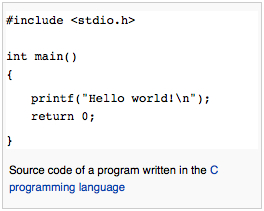 [div class=attrib]By Marc Andreesen for the WSJ:[end-div]
[div class=attrib]By Marc Andreesen for the WSJ:[end-div]
This week, Hewlett-Packard (where I am on the board) announced that it is exploring jettisoning its struggling PC business in favor of investing more heavily in software, where it sees better potential for growth. Meanwhile, Google plans to buy up the cellphone handset maker Motorola Mobility. Both moves surprised the tech world. But both moves are also in line with a trend I’ve observed, one that makes me optimistic about the future growth of the American and world economies, despite the recent turmoil in the stock market.
In short, software is eating the world.
More than 10 years after the peak of the 1990s dot-com bubble, a dozen or so new Internet companies like Facebook and Twitter are sparking controversy in Silicon Valley, due to their rapidly growing private market valuations, and even the occasional successful IPO. With scars from the heyday of Webvan and Pets.com still fresh in the investor psyche, people are asking, “Isn’t this just a dangerous new bubble?”
I, along with others, have been arguing the other side of the case. (I am co-founder and general partner of venture capital firm Andreessen-Horowitz, which has invested in Facebook, Groupon, Skype, Twitter, Zynga, and Foursquare, among others. I am also personally an investor in LinkedIn.) We believe that many of the prominent new Internet companies are building real, high-growth, high-margin, highly defensible businesses.
. . .
Why is this happening now?
Six decades into the computer revolution, four decades since the invention of the microprocessor, and two decades into the rise of the modern Internet, all of the technology required to transform industries through software finally works and can be widely delivered at global scale.
. . .
Perhaps the single most dramatic example of this phenomenon of software eating a traditional business is the suicide of Borders and corresponding rise of Amazon. In 2001, Borders agreed to hand over its online business to Amazon under the theory that online book sales were non-strategic and unimportant.
Oops.
Today, the world’s largest bookseller, Amazon, is a software company—its core capability is its amazing software engine for selling virtually everything online, no retail stores necessary. On top of that, while Borders was thrashing in the throes of impending bankruptcy, Amazon rearranged its web site to promote its Kindle digital books over physical books for the first time. Now even the books themselves are software.
[div class=attrib]More from theSource here.[end-div]
